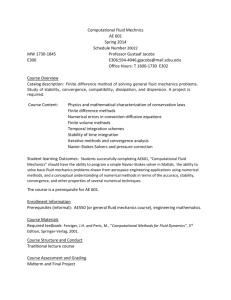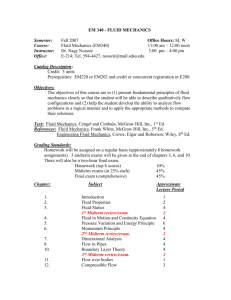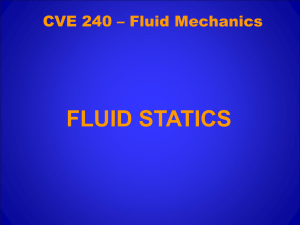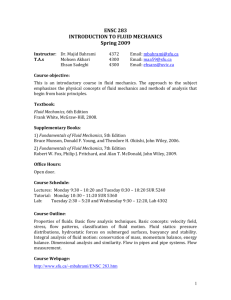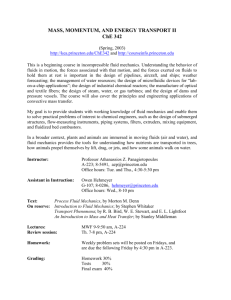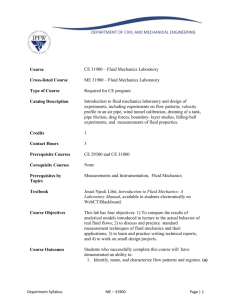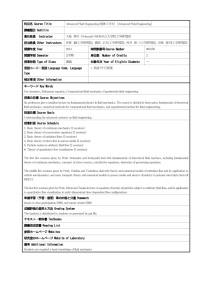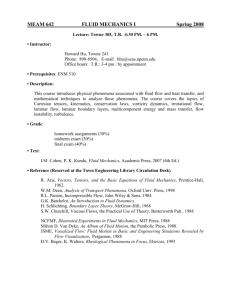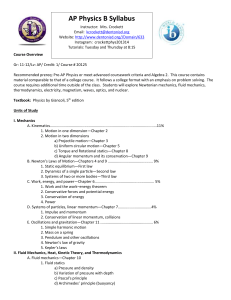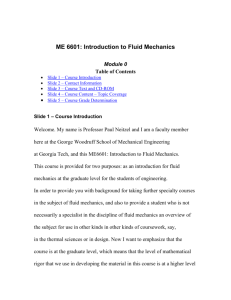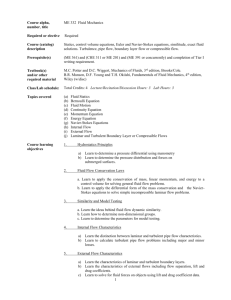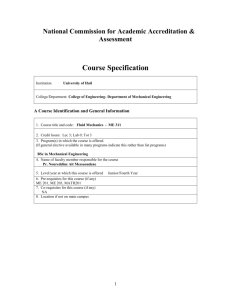Fluid Mechanics Lab
advertisement
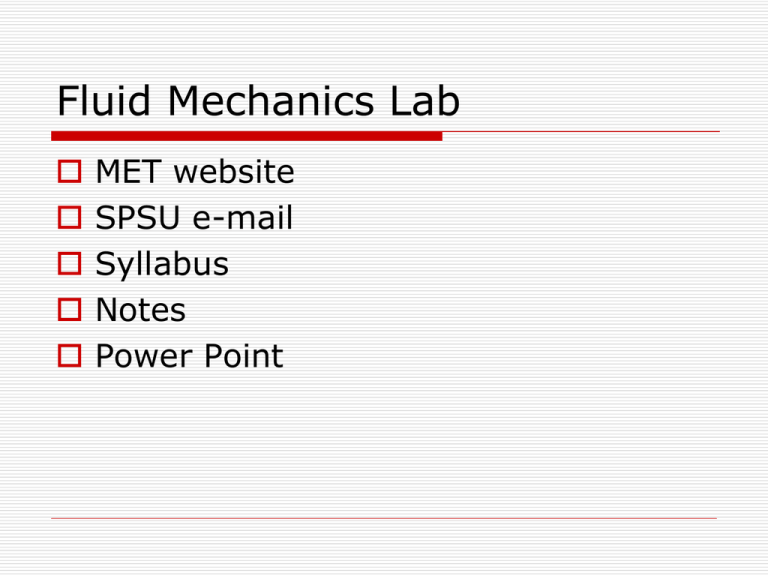
Fluid Mechanics Lab MET website SPSU e-mail Syllabus Notes Power Point Fluid Mechanics Lab Syllabus Contact information ADA Prerequisites Outcomes Grade Text Fluid Mechanics Lab Notes Schedule Lab locations Groups Fluid Mechanics Lab Power Point Fluid principles Changes in schedule Fluid Mechanics Lab Demonstrate fluid principles Hands-on: equipment & instrumentation Team work Communication skills Communications Skill valued by employers – surveys S.D. Warren FM Lab • • • • Preparation for industry Good work habits Safety Housekeeping: safe, efficient, OSHA On-time; in right place Fluid Mechanics Lab • • • Reports Individual Due dates Ethical behavior academic dishonesty Reports Formats Engineering journal Sales Capital project proposal Engineering memo: progress report Format • • • • • • • Follow format EXACTLY Format Title page Objective: fluid principle being demonstrated. Procedure: “As issued by the Instructor”; exceptions should be noted. Data: use “raw” lab data; no calculated or converted values. Results: tables and/or graphs Conclusions: support with values from Results. Present any comparisons with published data. Appendix: list any source used to prepare report; e.g. source of published values. Reports Word processor Proper grammar Complete sentences Computer-generated graphs Reports Neat & orderly Follow format exactly Reports Clear Concise Complete Correct Clear Vague: “the new model runs much faster than the old model but is much more expensive.” Clear: The CF 553 runs 84% faster than the RG 562 but costs an additional $4320.” Concise “I regret to inform you, at this time I basically do not have access to that specific information.” “This is a manually operated soil manipulator.” Concise Commence – start Utilize – use Proceed – go Exhibits the ability to – can In the majority of instances - usually Complete Start with an objective Collect meaningful data Analyze in line with objective Reach conclusions Correct Technically Grammatically Format Graphs • • • • Present data in concise, clear manner See trends Compare conditions Extrapolate data Develop equation to describe data Graphs Computer generated Descriptive title Abscissa – independent variable; ordinate – dependent variable Label axes: name & units; orientation Graphs Axes increment: consistent increments; appropriately sized Legend Staple upper right Multiple axes - example Graphs Continuous functions – smooth, best fit curve. Do not force the curve through every data point. No “free-hand” curve Curve vs bar chart
